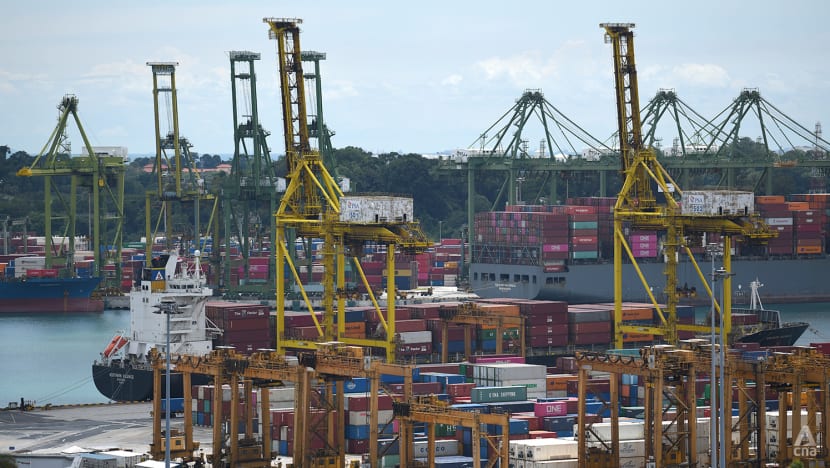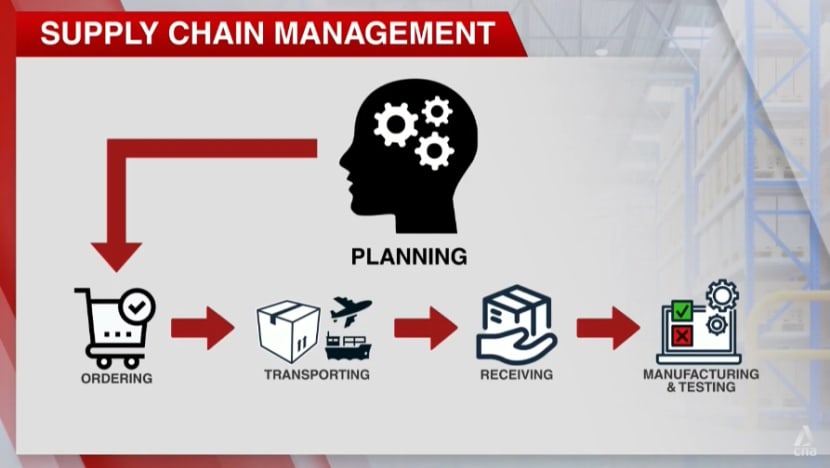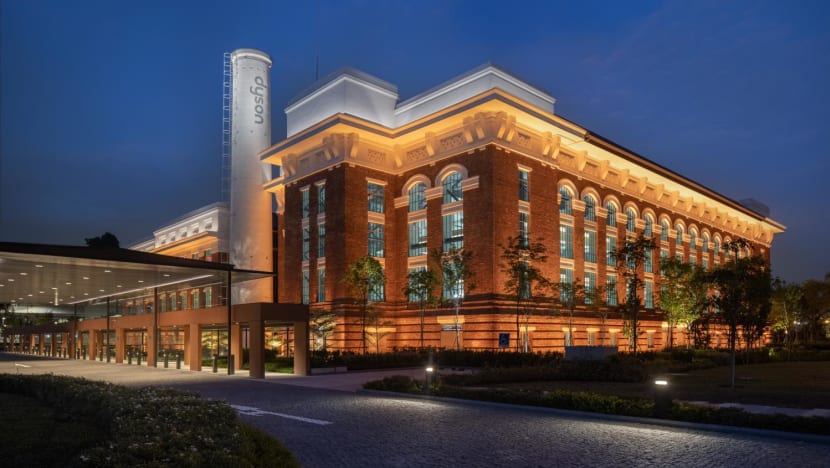More supply chain management jobs, skills development initiatives available as Singapore looks to grow sector
There will be 700 new jobs from now until 2025 within the industry, and new training initiatives have been launched to attract and retain talent in the field.

Container cranes and shipping containers seen at PSA Tanjong Pagar terminal. (File Photo: CNA/Calvin Oh)
SINGAPORE: Steps are being taken to develop talent in the supply chain management (SCM) sector as Singapore emerges as a hub for manufacturers to base their operations.
There will be 700 new jobs from now until 2025 within the industry, and new training initiatives have been launched to attract and retain talent in the field.
SCM professionals manage the flow and optimisation of goods and services from the sourcing of raw material to production to delivery.
Nearly a third of their jobs could become outdated in two years due to global trends impacting operations and workflow, a government report showed on Monday (Jul 10).
The new positions in the 70,000-strong sector are for professionals, managers, executives and technicians (PMETs) with digital and SCM knowledge, and will include roles such as data analysts and system designers.
Meanwhile, upskilling programmes aim to equip the local workforce with skills to access jobs in the sector like supply chain planning, sourcing and procurement, and logistics management.
TRENDS TRANSFORMING THE INDUSTRY
Findings from the inaugural SCM-Jobs Transformation Map (JTM) showed that employees in 12 of the 38 SCM roles investigated for the study will need to pick up new responsibilities and fresh skills to stay relevant.
For instance, customer service officers will have to learn advanced digital skills such as big data analytics to reach out to more customers.
Other roles facing impact include demand and supply planners, procurement specialists, production managers, warehouse executives and freight officers.

The study by the Economic Development Board (EDB), SkillsFuture Singapore (SSG) and Workforce Singapore (WSG), identified three key trends transforming the industry.
Digital literacy is increasingly sought after as technology automates manual tasks and facilitates a more efficient workflow.
There is also a shift towards being more resilient and agile against events like conflicts and pandemics, the report noted. This means diversifying sources, and making sure business can go on through better risk management.
As sustainability becomes a major concern for firms in every sector, those in SCM will also have to learn to come up with sustainability frameworks and put them in place.
MORE FIRMS SETTING UP SCM HUB HERE
With companies diversifying their supply chains to deal with global uncertainties, many are looking to Southeast Asia – particularly Singapore – as a preferred hub, said Ms Celia Sia, EDB’s senior vice president of hub services and connectivity.
“A recent survey looking at supply chain trends showed that almost 50 per cent of businesses with supply chain operations in Asia Pacific are planning to expand or build new manufacturing capacities in Southeast Asia in the next three years,” she told CNA’s Singapore Tonight.
“At EDB, we are seeing an increased interest from companies to set up supply chain management hubs in Singapore. Many already have their regional or international headquarters here so it makes sense to place their supply chain management teams (here as well).”
One such firm is consumer electronics giant Dyson, which shifted its global headquarters from Britain to Singapore last year.
“Singapore is at the centre of our global supply chain. We research, design and develop products here… Singapore is the right place for high-tech, research intensive businesses,” founder and chairman James Dyson had said during the official opening.
The company said it has seen its processes transformed and enhanced by digitalisation and automation over the years.

“Our factory in Tuas is highly automated. The skillset has changed from people doing very manual, very mundane jobs to be able to utilise digital tools and use data to make decisions. This is also the upskilling that we need to continue to do,” said the firm’s chief supply chain officer Michelle Shi-Verdaasdonk.
“Ten years ago, people might not want to have a job as a warehouse or logistics executive, because they think of the environment as dirty, or of the work being heavy duty,” she added.
“But with all the automation that have come into modern warehouses, and also the technologies that are applied literally at your fingertips, it's (different and) a lot safer today.”
TALENT AND UPSKILLING
Government agencies such as SkillsFuture will work with institutes for higher learning to translate these increasingly sought-after skillsets into training programmes, said WSG’s manufacturing division director Anderson Ee.
They will cater to both employers looking to upskill their existing workforce, as well s individuals seeking to equip themselves with relevant knowledge to join the sector or to progress in their current roles.
“There are ongoing efforts to enhance public awareness of SCM, such as collaboration with industry stakeholders,” Mr Ee said.
“(Our partners have also) launched masterclasses equipping individuals with digital and sustainability skillsets to manage the flow of goods and services in the new world. There is a lot more to be done, and we are working on developing and attracting talents in this particular sector.”
SCM professionals command a median salary of approximately S$5,900, higher than the national median salary of S$4,680, the EDB said.
The EDB and SSG has developed a reference guide on trends reshaping SCM jobs, in-demand skills, and information on training. It will be available on the EDB website on Jul 31.
“These insights will guide our training providers in curriculum development and help enterprises enhance their in-house SCM training programmes,” said Minister of State for Trade and Industry Low Yen Ling.
“They will also help workers get equipped with the necessary skills to upskill and reskill for a rewarding career.”

















